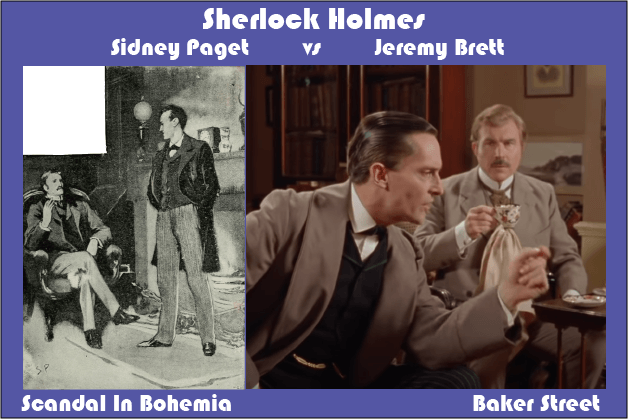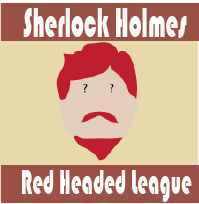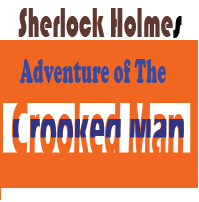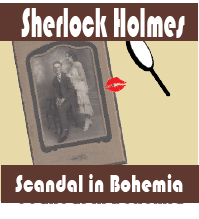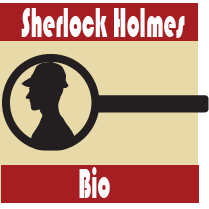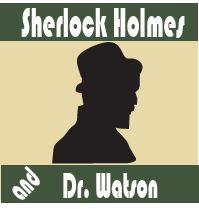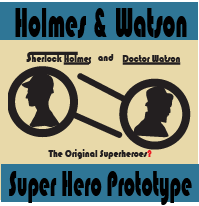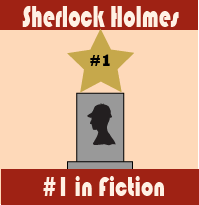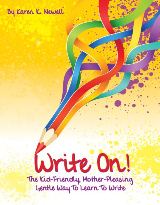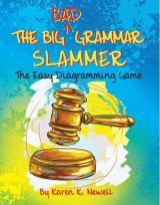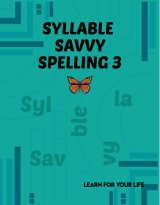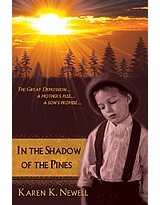Jeremy Brett as Sherlock Holmes
Interview with David Stuart Davies
September 9, 2020 Interview with David Stuart Davies on Jeremy Brett's role as Sherlock Holmes
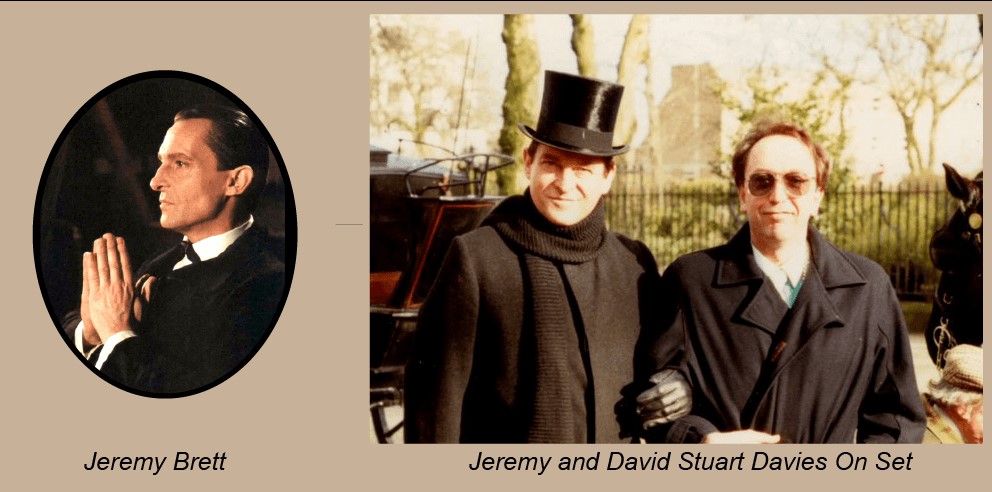
Jeremy Brett with David Stuart Davies
About David
David is a British crime writer, Sherlockian scholar, and editor who visited Jeremy Brett during many of his filming sessions of Sherlock Holmes. His non-fiction books on the subject include:- Holmes of the Movies: The Screen Career of Sherlock Holmes
- Bending the Willow: Jeremy Brett as Sherlock Holmes
- Starring Sherlock Holmes: A Century of the Master Detective on Screen
- Dancing in the Moonlight: Jeremy Brett - A Celebration
September 2020 Interview
Q: Can you describe how you came to know Jeremy Brett?At first by watching it on television. I have been a Sherlockian aficionado from childhood. So when the Granada series began showing in the 80's that was the thing to do. He was so remarkable. Over the years there had been many Sherlock Holmes programs. I am thinking particularly the Basil Rathbone films and the BBC series with Peter Cushing in the 60s. But the Jeremy Brett series seemed to take Conan Doyle stories seriously.
They were trying to bring the Doyle stories to a fresh audience - we are talking about the 1980s now. Jeremy wanted to take on the mantle of Holmes because he wanted to bring Conan Doyle’s Sherlock Holmes to the viewing public rather than just a sort of a thrill adventure TV series.
Q: So you were watching the shows as they came out?
Yes indeed. I remember the first episode which was Scandal in Bohemia. There’s that brilliant opening scene where Watson comes into the room and he’s talking to Holmes. You do not see Sherlock’s face you just see the back of his head and then slowly Jeremy turns his head round and you gradually see him . And you think “Crikey! That’s Sherlock Holmes! That is Sidney Paget’s drawing brought to life!" Sidney Paget illustrated the original Conan Doyle stories for The Strand magazine all those years ago.
That first show was magic. Their adaptation of Scandal in Bohemia was so close to the original story as composed by Doyle; it was remarkable. There was one brilliant scene in it. In the story Holmes is supposed to take on the disguise of a groom. At first I thought, “Hang on a minute is that Holmes? Is that Jeremy Brett? Oh my goodness me it is!” But he was so clever in that disguise.
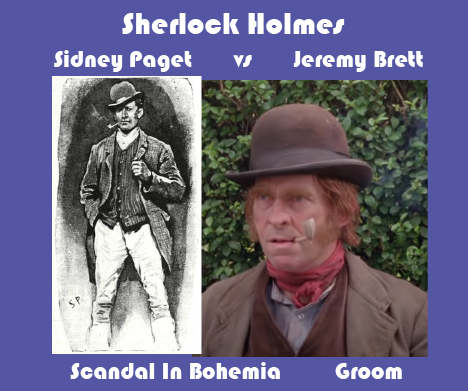 So it was a magical first episode. But it actually wasn’t the first film that they made. They made other films before that because they thought this was such a special episode they wanted Jeremy to work on the role before he did that particularly key episode where he talks about a woman who was THE woman.
So it was a magical first episode. But it actually wasn’t the first film that they made. They made other films before that because they thought this was such a special episode they wanted Jeremy to work on the role before he did that particularly key episode where he talks about a woman who was THE woman.
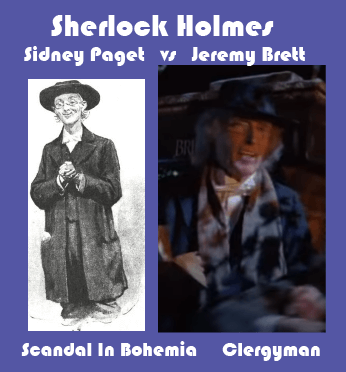
Yeah that was the thing in those days. Now you can get boxed sets on various channels and you can spend evenings watching the whole thing. But I suppose in many ways that was kind of sweet because the anticipation was sort of pleasing.
Q: So as a Sherlock scholar how did you bridge that gap to get to meet the popular Sherlock actor? Did he know about you?
He didn’t but the producer Michael Cox did.
When I was at the university in the 70’s I wanted to do my final dissertation on Conan Doyle. I was told by tutors that Conan Doyle was not important enough of an author for me to write about so I wrote a compendium of authors in my dissertation. But to entertain myself I wrote about Doyle and about the films of Sherlock Holmes. There were dramatic presentations of Sherlock right from the early days of film. I sent the manuscript off to a publisher. Holmes of the Movies is the title of my original book and it was remarkable as a writer to get an acceptance straight away. But this book was known by Michael Cox, the producer of the Granada series.
So after I had seen the shows I contacted Michael and said “Oh I love the series. Is there any chance for me to do some interviews with Jeremy?” About that time I was also writing for an American magazine called Scarlet Street which was in print from 1991 to 2006.
Michael arranged for me to meet Jeremy. My first meeting with him was in a Winnebago in Liverpool while they were filming the Hound of the Baskervilles in 1988. It was a lovely movement because as an actor of a top-rated TV show he was getting journalists coming in and out all the time And so I was taken in to meet him in his Winnebago with a PR lady and she said “You’ve got five minutes with Jeremy.” He was used to seeing newspaper people who knew nothing about him or Holmes and I knew about Sherlock. When the lady came back and said, “Your time is up” he said, “No we are fine. Let him stay. We are chatting nicely.” So we talked about Sherlock Holmes for nearly an hour. Because he was deep into the subject, he’d read all the stories, picked up all the nuances of Holmes’ character. And that established a relationship between us right through until he died.
But let me tell you a story about this first meeting. He seemed to have warmed to me and we exchanged phone numbers. About a week later the phone rang just as I was about to have my evening meal. I picked up the phone and I heard a voice saying “Hello, David, it is Jeremy here.” And I thought, “Jeremy who?” Thank God I had enough to realize it was Jeremy Brett. He said, “I just want to correct a point I made about something the other day.” And I thought, “That was a week ago; I interviewed you a week ago!” That was so sweet of him.
Q: Did you see him many times?
Yes, I was frequently with him on set. I was just there to do interviews. I was writing for various publications including The Scarlet Street which was a film and TV magazine published in America. And I also wrote for Sherlock Holmes journals here in England. I have been on other sets and met other Sherlock actors as well.
So I was frequently doing interviews with him. He never ever ever said anything unpleasant to me in all the time I knew him. He rang me up, I went to his flat at Clapham three times, and obviously I met him on the set a lot. He was happy to talk about that Sherlock Holmes and the series and his presentation because he knew I wasn’t looking for gossip like some others.
And as a result I also met David Burke and Edward Hardwick. Edward in particular became very friendly and I went to his house on one occasion. He was so strongly supportive of Jeremy in his illness and an absolutely lovely man. I feel privileged to have been in their company.
Q: Did Jeremy ever discuss his decision to accept the role of Sherlock?
I do know that when he was offered Sherlock he also had been offered a Shakespeare play - I cant remember which one now. He was just one the verge of going on a holiday and he went away with these two prospects in mind. When he came back he said, “I think I’ll do Sherlock.” Sherlock was something a bit different for him. He had done Shakespeare before but he had never done anything so challenging as this character.
The last time Sherlock Holmes had been seen on television in Britain was when Peter Cushing played him in the 60's. Those were a bit creaky now. This was going to be wonderfully mounted filmed versions with a full Baker Street set. He obviously thought this would be good.
I don’t know that we ever did discuss this but I think it was a career move as well. As an actor he wasn’t known to the general public then. He was a sound professional person but a man in the street would likely say “I don’t know who Jeremy Brett is.” But as soon as the series took off everyone knew the name of Jeremy Brett. He was on talk shows and breakfast television. So it was a good career move. But I don’t think he necessarily knew that was going to happen.
Q: Was Jeremy a Sherlock Holmes fan before he was asked to be the actor? Did he know those stories?
No I don’t think he did. I think he approached all parts with a fresh eye. He was particularly interested in Shakespeare and was in Shakespeare plays. Michael Cox contacted him. And Brett was not at all like Sherlock Holmes in personality. He was a very outgoing jolly fellow; a lovely lovely cheerful fellow. So he was not like the dark shadow as he thought of Holmes.
But once Jeremy had taken on a role he investigated it; he researched it; he looked at it closely. He imbued himself into that role in a dramatic way. He was an actor of the old school if you like. He became the role that he took on.
Q: Jeremy was the first actor that saw the full-side of Holmes. So in spite of the fact that Jeremy thought he was a dark character, he was the first that portrayed the warmth in him.
Yes. Despite the criticisms he had of Watson, you see the warmth he feels toward Watson. There is one particularly lovely moment in The Six Napoleans. Lestrade is in the Baker Street rooms waiting for Watson and Holmes to arrive. He’s becoming a bit nosy about one of the files on Holmes’ desk. Holmes and Watson arrive just at the doorway and spot Lestrade trying to look at this file and they exchange glances. They smile at each other and there’s a wonderful camaraderie between them. You think these are two men who love each other’s company. These are two men who are attuned to each other. And I think that has not been captured very often if at all by other performances of Holmes and Watson.
It’s wonderful and I think probably because Edward Hardwick was so affectionate towards Jeremy in real life. He looked after him when he was very ill. That sort of closeness comes across on the screen.
Q: You mentioned he thought Sherlock was hard to play. But he was a Shakespeare actor and its hard to imagine that Sherlock is harder to play than Shakespeare.
Yes, he said he was more difficult than Hamlet. And he is because he must come across as an interesting character you can feel attracted to. At the same time he has to remain this cold person. “Give me work, I’m just a mere brain,” he says at one point. Those complex elements within the character have to merge into a performance which remains true to the original but also is attractive to the viewing public. Because in the end Jeremy is an actor and he had to give a performance.
Q: And Jeremy was known for putting a lot into his performances.
I wrote a book about Jeremy’s career as Sherlock called “Bending the Willow.” The title sums up Jeremy’s performance because when we were talking about Sherlock he said, “I want to do the good Conan Doyle Holmes but I am actually bending the willow. I’m just doing a little bit more.”
As a writer that has written three Holmes plays and eight novels, I understood what he meant. I’ve always wanted to go a little bit beyond Conan Doyle because if you just do the basics that Doyle did originally you aren’t adding anything. So Jeremy just touched up the presentation of Holmes a little bit in a way to make it more interesting to his modern audience of the 80s. And it still rings true with modern viewers because it captures the essence of what Holmes is all about.
Q: Did he enjoy playing this part?
It really took over his life. It was a love hate relationship with the character. He loved playing it and hated the character because the character itself was so far away from his own character. So he was really having to quash all the jolliness and bona vie that he had in himself.
Here’s one example. He would have a polaroid camera and would take photographs of the people on the set. Not just the stars but he would photograph the lady who did the makeup and all the others. Then he put a whole range of photographs on a board at the end of the week saying, “Here they are.”
He was very a very jolly friendly person and he loved the camaraderie that you get on a film set. Then suddenly in the midst of that camaraderie someone would say, “Jeremy, it’s time to film.” Suddenly Jeremy changed characters and would bark, “Watson, we must go and investigate this murder.” It was a dramatic change of attitude and that began to tell on him towards the end of his career. But, of course, he had obviously health problems which didn’t help.
Q: And he kept the role of Sherlock Holmes for ten years, compared to most films which might take only a few months.
Absolutely, and affected his health to some extent. He saw Holmes as a very dark person which he is in many ways. He is a man who has no warmth; he has no feelings for ladies; and he was concentrated in the scientific pursuit as a detective. And to become that role you become somewhat isolated from your fellow man.
Q: As his health deteriorated, did this role become harder for him?
One of the closest persons to him at this time was Edward Hardwick and there is an incident told in Bending the Willow about them. They did a two-man stage play together and at that time they had a falling out. More precisely, Jeremy fell out with Hardwick because at one point he just went off on a tangent on-stage, a non-scripted tangent, and Edward complained about this. Jeremy because he was not well mentally, blew up at him. It upset Hardwick very much. Hardwick wondered about the future of this play and the future of their relationship. So Edward, who was the loveliest of men, stayed up all night and wrote this long, multi paged letter. And the next day at the theatre Edward went into the dressing room and put the letter on Jeremy’s make up table and left. Jeremy came into Edward’s room a few minutes later, he hadn’t even had time to read the whole letter, and said, “Oh my dear boy, I am so sorry.” He hugged him and everything was all right again. That was the fragile nature of Jeremy’s mind at that time.
I visited on set numerous times and he was incredibly kind to me. I never saw any nastiness towards me. But I did see him snap at other people. And I always thought, “That is not Jeremy.”
I saw him in September on the set filming and he looked ill. This was towards the end of the series. And as always he was very kind and generous to me. The next day I read that he had been taken to the hospital for failing health. It was a very sad thing because he had bipolar disease and a weakened heart and was a comparatively young man. It was terrible. But I have fantastic memories of him.
Q: You saw him from close to the beginning until the end of his filming?
My last face-to-face interview with him was about eighteen months before he died. This was Spring of 1994 and we were on the set of the Cardboard Box. He had lost a lot of weight through his illness and he was breathing very badly. We met in his dressing room, and he was a shadow of his former self. When I thought about the years I had known him I thought it was a sad trajectory from the bright actor he had been.
Q: What do you think of the series now after several decades?
He was, if you like, the ultimate Conan Doyle Sherlock Holmes. There are other interesting Sherlock Holmes in all sorts of ways. I mean Benedict Cumberbatch is a very interesting Holmes. But he doesn’t touch on the loadstone that was Conan Doyle. Brett was brilliant.
Q: Cumberbatch is what the younger generation sees of Sherlock. I like Cumberbatch, he’s fun. He said he watched Brett when he was growing up.
I was at the annual dinner of the Sherlock Holmes Society of London a number of years ago. Mark Gatiss, one of the writers on the Benedict Cumberbatch series who actually plays Mycroft, approached me. Mark told me they were going to do a Sherlock Holmes series but set it in modern times. And I said, “My god that’s not possible. Sherlock Holmes is such a Victorian character.”
Can you imagine? Holmes is on the Baskerville moor and the hound is coming towards him glowing and with riveting jaws. Holmes just picks up his mobile phone and says, “Send backup, Watson.”
Mark told me, “We are going to do that.” And I thought that the first couple in the Cumberbatch series were brilliant and then it just sort of went pastiche.
Q: I have found that some younger people who have seen Cumberbatch are curious to learn what is in the original stories.
I agree entirely. I think the Sherlock series has increased interest in the character and some follow on to reading the Holmes stories. That’s fabulous. All the better for that. And it will go on. There will be more series. Apparently there is a Russian series just about to hit the TV screen in various places.
Holmes will carry on.
I mean you think about it. There were nearly a hundred silent movies before sound was added to film. Every decade has had some character playing Sherlock Holmes. And it will continue to go on.
Q: Jeremy Brett is still considered the greatest, even in a recent poll this summer. How long do you think Jeremy will be the king on the mountain?
Well, he has a strong following still. Its amazing really. He still is – and I’m repeating myself here. He’s the authentic Holmes. I’m trying to think of other actors that quite captured that Doylean presentation. And I’m very fond of Basil Rathbone – but of course they were set in the 40s. I like Ian Richardson. I like Peter Cushing, But in the end, I’ve got to go back with Jeremy. Because you want your heroes to be enigmatic and unapproachable but fascinating. And Jeremy did all that.
Q: And of course there are other detectives. I recently heard two students comparing Sherlock and Father Brown.
The thing about Father Brown is he lacks charisma. He’s a puzzle-solver certainly. But that’s it. Holmes has his faults, has his demons, and he’s very charismatic. You want to know why he is like that. You want to find out more. But with Father Brown you think, “Oh clever old guy. But you know he’s a bit dull.”
Q: Had Jeremy not become ill, what would have happened to the series? Were they planning on completing all sixty stories?
If you are talking about Conan Doyle stories, I think that some of the remaining stories are as dull as dishwater. They remain interesting because of Holmes and Watson but the plots themselves aren’t very good. Are they actually detective stories or are they stories that happen to have a detective? Some of the stories were done by Doyle on a bad day. But always he was able to capture the character of Holmes and the relationship of Holmes and Watson which was a key element to the success of the stories.
Q: What about some of the unfilmed stories? Wouldn’t it have been great to see Jeremy Brett rolling on the floor with the whaler in the Adventure of Black Peter, or Hardwick’s reaction to Holmes trying to harpoon a pig?
They obviously used the most filmatic stories early in the series but some of the remaining stories don’t lend themselves so well to a full hour of television. That's why with the episode of The Three Garridebs they compiled two stories into one. Also with the Illustrious Client they combined it with the tiger attack in The Veiled Lodger. They were struggling towards the end with content.
At one point towards the end June Wyndham Davis was the producer and they considered filming a Sherlock novel that I was writing. They wanted a two hour show because the popular Inspector Morse series was two hours. Therefore Granada was interested in my novel “The Scroll of the Dead.” Initially it involved mummies and papyrus and Holmes and Watson went to Egypt.
June said “Can you redo that so we don’t have go to Egypt? We can’t afford getting Edward and Jeremy to Egypt.” So I rewrote it. I had already written half the novel. And they said, “We’ll go with this.”
Jeremy Paul was going to write the screen play based on my novel. But it was Jeremy Brett who said, “No.” Not to my script particularly, but he said, “I’m not doing anything that isn’t Conan Doyle.”
Q: What did he want to do next then?
Well, at the very, very end of his life we had this phone call and I said, “Is there one story you haven’t done that you would like to do?” And here’s what he said, “I’d like to have another crack at the Hound of Baskervilles. I don’t think we got it right.“
Towards the end of his life he knew that he would make very few films at all - if any - because of his medical condition. He wasn’t going to be able to get insurance for appearing on a film set. So he did a couple of voice overs for cartoons and he had been asked to play Scrooge in a stage production but couldn’t get the insurance.
This was at the very end of his life. At that time I was involved in a Sherlock Holmes Society and we were having a meeting in Edinburgh where Conan Doyle was born. Initially Jeremy agreed to come and be a guest star at this weekend. But his health would not allow him to do so.
He then agreed to do a telephone interview so I could play that to the attendees which is what we did. And it was touching and moving really because he knew that a) his time as Sherlock Holmes was over and b) he had not long to live. It was such a lovely movement. In fact the tape that I recorded I played at 2018 From Gillette to Brett Sherlock film convention in America. The audience were in tears.
Q: Do you know Jeremy’s views on life after death? Did he share Doyle’s views on spiritualism?
No he didn’t to be honest. He was I think a pragmatic person and I don’t think he believe in spiritualism at all.
He was very very fond of Dame Jean Conan Doyle and she of him. But I don’t think she or he shared Arthur Conan Doyle’s views about life after death. I think probably because Dame Jean had a career of her own, she was a commandant during the war. The notion of Conan Doyle’s obsession with fairies and life after death was brought on by the death of his son and the need to feel that there was something else. There was going to be a séance and Doyle was going to speak to his wife. It never happened.
So, no I don’t think Jeremy had any strong thoughts about that at all.
So it was a very sad end to a brilliant actor. And so sad that he was not recognized. He was a wonderful man. A unique individual. And I don’t think we will come across the same again.
Q: Any final words you would like to say to young people who are just starting to read Sherlock either about Brett or about Sherlock?
I first encountered Sherlock Holmes on the library shelves when I was about twelve in the Hound of the Baskervilles. Reading that filled me into Sherlockian slavery for the rest of my life. If you read the early stories, the Hound of the Baskervilles particularly, you will want to know more about this fascinating man. There are very few people with such magnetism and brilliance in modern society that will match Mr. Holmes.
And if you then want to go beyond that, to see how that character is presented in a visual form or dramatized form, you can do no better than look at a Granada episode starring Jeremy Brett.
Works by David Stuart Davies
David's two main non-fiction works about Jeremy Brett include Bending the Willow and Dancing in the Moonlight. Look for his other books on Sherlock actors which include Starring Sherlock Holmes as well as his original book mentioned above, Holmes of the Movies. Younger readers will want to check out The Sherlock Holmes Book: Big Ideas Simply Explained by DK Publishing.

David's website can be visited to see more of his fiction and non-fiction books.
Watching Jeremy Brett's Performance
Read more about how to watch Jeremy Brett as Sherlock Holmes. Analyze the actor and the character and learn how to find simarities and differences between the original stories and the filmed versions.Buy Sherlock Holmes: The Unit Study
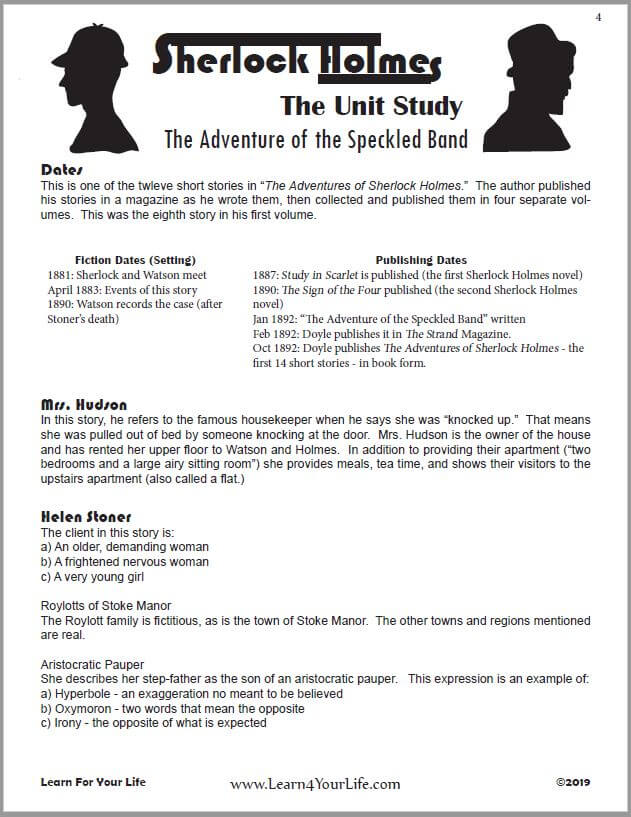
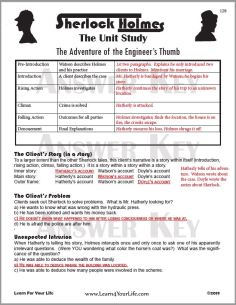
Student Guide AND Teacher's Answer Key Included
$2.99 Download - 183 pages
Eight of the most popular tales demonstrate how to investigate a detective story.
![]()
Sherlock Holmes Pages
A catalog of our pages on Sherlock Holmes.


About Our Site
Hands-On Learning


